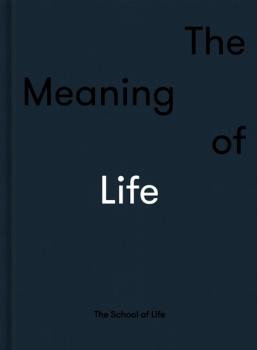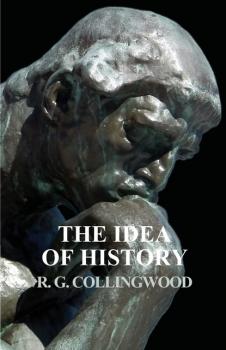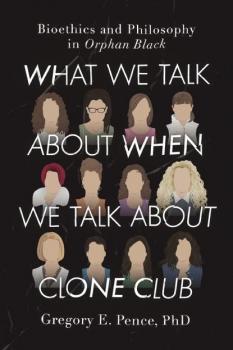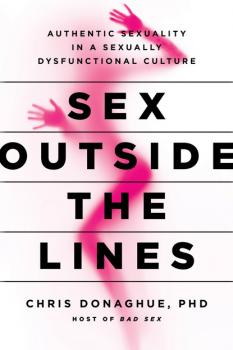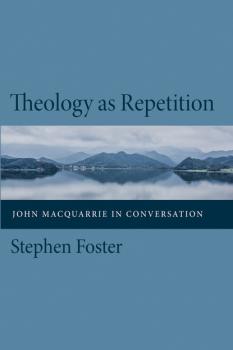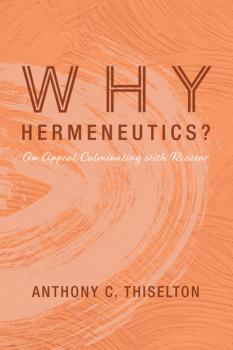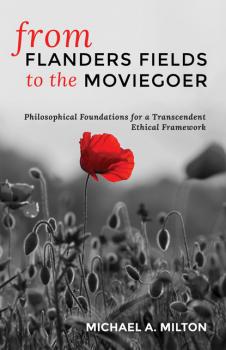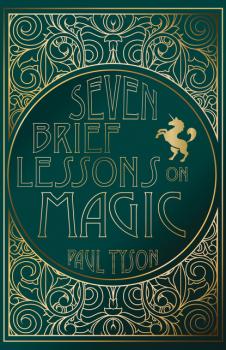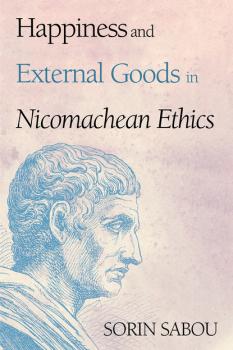ТОП просматриваемых книг сайта:
Философия
Различные книги в жанре Философия, доступные для чтения и скачиванияАннотация
Addresses with insight and compassion a question which, throughout history, has been a cause for much speculation and debate. Turns the pursuit of a meaningful life from a comedically-complex impossibility to something we can all comprehend, aim for and succeed at. A philosophical approach to finding meaning in life, exploring the varied potential sources of meaning, from love and family, to work, culture and nature. Beautifully produced, high end gift format. Illustrated with full colour images.
Аннотация
Robin George Collingwood, FBA (1889 – 1943) was an English historian, philosopher, and archaeologist most famous his philosophical works. Along with “The Principles of Art” (1938), Collingwood's “The Idea of History” was his best-known work, originally collated from numerous sources following his death by a student of his, T. M. Knox. It became a major inspiration for philosophy of history in the western world and is extensively cited to his day. This fascinating volume on history and its relationship to philosophy will appeal to students and collectors of vintage philosophical works alike. Contents include: “The Philosophy of History”, “History's Nature”, “Object”, “Method”, “Greco-Roman Histography”, “The Influence of Christianity”, “The Threshold of Scientific History”, “Scientific History”, “England”, “Germany”, “France”, “Italy”, etc. Many vintage books such as this are increasingly scarce and expensive. It is with this in mind that we are republishing this volume today in an affordable, high-quality, modern edition complete with a specially-commissioned new biography of the author.
Аннотация
What is the real-world history and science of human cloning, and does Orphan Black get it right? Can you “own” a person—even a cloned one? How can Sarah Manning be straight, Cosima gay, and Tony trans? Cult hit sci-fi show Orphan Black doesn’t just entertain—it also raises fascinating questions about human cloning, its ethics, and its impact on personal identity.In What We Talk About When We Talk About Clone Club: Bioethics and Philosophy in Orphan Black, prominent bioethicist Gregory E. Pence violates Clone Club’s first rule to take us deeper into the show and its connections to the real world, including:Widespread myths about human clones (and Orphan Black’s rejection of them)Our ugly history of eugenicsThe ethics of human experimentation, by way of Projects Castor and LedaWhat we can learn about clones and identity from twin studies and tensions among Orphan Black’s clone “sisters”Kendall Malone and other genetic anomaliesThe brave new world of genetic enhancement and clonal dynasties, and how Helena and Kira Manning fit inIn the process, What We Talk About When We Talk About Clone Club reveals why Orphan Black is some of today’s most engaging and thought-provoking television.
Аннотация
It’s socially acceptable to spend a day watching sports or sitcoms, but it’s shameful and embarrassing to admit to the same about erotic media. Why is it that sex is so often deemed “inappropriate” and considered something we must keep private or even ignore?Our culture is afraid of sex. We feel the need to label what is normal and what isn’t, and as a result, we live in a relational and sexually unhealthy culture. In reality, far more harm is caused by labeling sexual expression as “obscene” than by celebrating it.In Sex Outside the Lines: Authentic Sexuality in a Sexually Dysfunctional Culture, Chris Donaghue, PhD, explores and challenges the negative ideals that have warped society’s view of sex. Sex Outside the Lines is not a dogmatic rule book, but a valuable guide to help you on your journey to sexual self-discovery and, most important, self-acceptance. Donaghue encourages you to not only explore your capacity for pleasure, but to be proud of it and to take a look at how you could be living.In his years of training in sex and couples therapy, Donaghue has developed highly successful methods for freeing clients from sexual hang-ups, enabling them to let go of shame and embarrassment. The goal isn’t to be “normal”—there is no such thing. Donaghue pulls apart cultural phobias with a sex-positive therapy practice, as well as a kind of sexual deprograming that helps people see and accept that the desires they have—even if they don’t align with society’s expectations—are actually natural, healthy, and part of having a great sex life.Sex Outside the Lines addresses our diversity, challenges conventional psychiatric wisdom as classifying perfectly normal behavior as disorders, and disregards conventional advice from leading experts. It isn’t advocating a “liberal” approach to modern concepts—it is seeking to redefine them altogether.
Аннотация
Theology as Repetition revisits and argues for a revival of John Macquarrie's philosophical theology. Macquarrie was a key twentieth-century theological voice and was considered a foremost interpreter and translator of Martin Heidegger's philosophy. He then somehow fell from view. Macquarrie developed a new style of theology, grounded in a dialectical phenomenology that is a relevant voice in responding to recent trends in theology. The development of the book is partly chronological and partly thematic, and avoids attempting to be either deductive or inductive in argument, but rather reflects Macquarrie's phenomenologically styled new theology. Theology as Repetition is set out in two parts. The first part situates Macquarrie in relation to thinkers from the radical theology of the 1960s through to the postmodernists of the late twentieth century. The second part explores the intersection of key themes in Macquarrie's theology with the thinking of Kant, Hegel, Heidegger, and representative postsecular and postmodern figures, including but not limited to Emmanuel Levinas, Jacques Derrida, and Jean-Luc Marion.
Аннотация
In this little volume, Anthony Thiselton makes an impassioned appeal for closer attention to the philosophy of hermeneutics. Emilio Betti provocatively observes that hermeneutics ought to constitute an obligatory course for most degrees in the humanities. Hermeneutics, he insists, teaches patience, tolerance, respect for other views, understanding, and humility, while holding one's own views with firmness and generosity. Yet many teaching institutions do not yet recognize this. With this in mind, Thiselton first considers and responds to those who argue that hermeneutics is not necessary. Then he considers anew more sophisticated thinkers on the subject. Types of texts and hermeneutical models, he argues, are almost infinite, a fact many biblical scholars do not recognize. In the field of biblical hermeneutics, too many view the Bible as one thing, or as a monochrome landscape–it is not. The culmination of Thiselton's case consists in a sustained reflection on the impressive work of Paul Ricoeur, selecting thirteen points of genuine advance his work makes. With a glossary of fifty technical terms this is a volume that will prove helpful to student and scholar alike.
Аннотация
How do educators, clergy, attorneys, and the concerned public come to terms with meaningful, workable ethics in an age that eschews any attempt to define truth and error? Michael A. Milton has addressed that question in the new monograph, From Flanders Field to the Moviegoer: Philosophical Foundations for a Transcendent Ethical Framework. Milton draws on English literature, sociology, history, public policy, and theology to mark milestones in the cultural journey from the philosophical crisis after World War I, the end of modernity and the introduction of the «theater of the absurd» in post-modernity. Rather than merely a survey, this monograph proposes a «way forward» in teaching metaphysical ethics. Originally given as a paper before American and British defense leaders in Washington, DC, Milton's original paper is now expanded for use in undergraduate, graduate, and postgraduate classrooms, as well as libraries and professional military education.
Аннотация
Is magic real? Could anything be real that can't be quantified or scientifically investigated? Are qualities like love, beauty, and goodness really just about hormones and survival? Are strangely immaterial things, like thought and personhood, fully explainable in scientific terms? Does nature itself have any intrinsic value, mysterious presence, or transcendent horizon? Once we ask these questions, the answer is pretty obvious: of course science can't give us a complete picture of reality. Science is very good at what it is good at, but highly important aspects of human meaning are simply outside of science's knowledge range. So how might we better relate scientific facts to qualitative mysteries? How might we integrate our powerful factual knowledge with wisdom about the higher meaning of things? This book defines magic as the real qualities and mysteries of the world that science just can't grasp. It looks at how we came to put magic in the box of subjective make-believe. It explores how we might get it out of that box and back into our understanding of reality.
Аннотация
In this volume, Sorin Sabou explores the dependency of happiness on external goods in Aristotle's Nicomachean Ethics. Sabou defends the following thesis: the dependency of happiness on external goods, in EN, is interpreted in the light of its political self-sufficiency, and in the light of our political humanity; this dependency is of three kinds: (1) enhancing-instrumental, (2) constitutive, and (3) subsistent.


